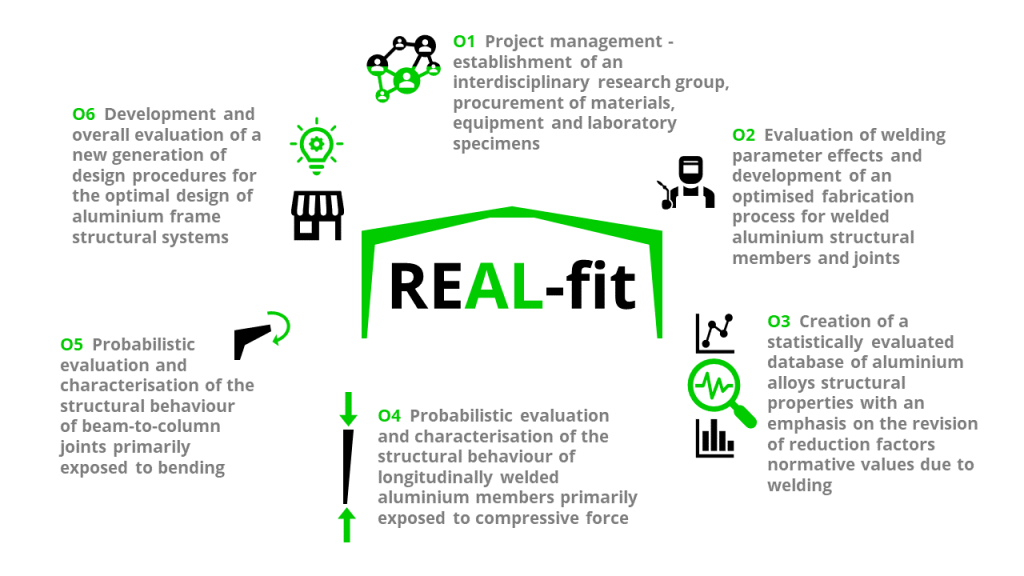
REAL-fit Project
Project summary
Although structural aluminium alloys have many advantages compared to other construction materials (low self-weight, corrosion resistance, 100% recyclable), they are associated with predominantly conservative design methods given in Eurocode 9. Conservative reductions of aluminium mechanical properties in the welded connection zone have the effect of avoiding the use of welded members, which significantly limits the use of aluminium in load-bearing structures. This is because structures with larger spans require large dimensions of the members, which cannot be produced by extrusion. Moreover, the use of extruded aluminium members does not allow for rationalisation of material consumption, as can be achieved with welded tapered members that are specifically shaped according to their function in the structural system. In this sense, the REAL-fit project proposes comprehensive interdisciplinary research on the possibility of applying innovative robotic production technologies and reliable design methods for aluminium welded members, joints, and entire structural systems. The planned development of an optimised robotic welding process will form the basis for research into the structural behaviour of welded aluminium members and beam-to-column joints. In addition to experimental and numerical methods, probabilistic methods will also be used in the research. 2nd order probabilistic analyses will enable a scientifically based improvement of the design procedures given in the European norms for the design of aluminium structures. Furthermore, the challenges of the application of aluminium alloys in construction will be solved with a holistic approach that integrates the advanced Direct Design Method of structural design with the methods of life-cycle assessment and life-cycle cost analysis. This is precisely one of the ultimate goals of the project, which will evaluate the reliability and sustainability of economic aluminium structures throughout their life cycle.
The project has a total value of 155.683,85 EUR and is funded by the Croatian Science Foundation.
Scientific research objectives of the project
The main objective of the REAL-fit project is to develop reliable methods for the systematic design of optimally reliable sustainable aluminium structures that meet even the most rigorous requirements imposed for nature conservation in the near future. To realize the proposed research, it is necessary to systematically achieve scientific research goals – O2-O6.
